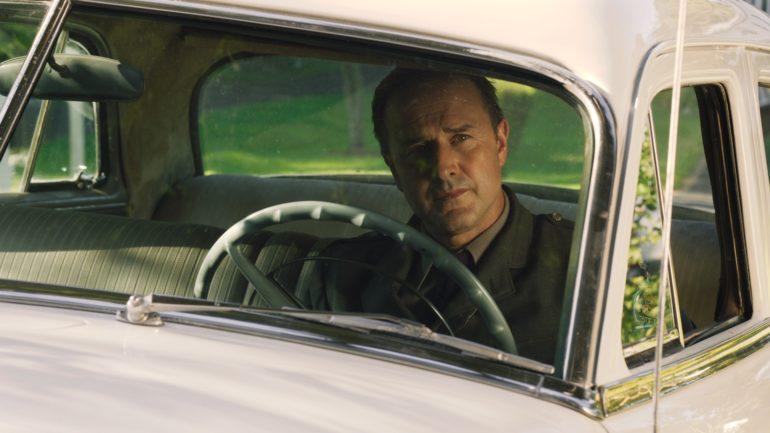‘Mob Town’: Film Review
By Nick Schager
LOS ANGELES (Variety.com) – “Who doesn’t love spaghetti?” asks New York State Trooper Ed Croswell (David Arquette) while on a date with single mother Natalie (Jennifer Esposito) in “Mob Town,” and the answer, according to Danny A. Abeckaser’s film, is no one. The traditional Italian dish figures prominently in this low-rent Mafia tale, which — based on an infamous gathering of top organized-crime bigwigs in remote upstate Apalachin, N.Y. — has been concocted with nothing but stale, clichéd ingredients. Clumsy in every respect, it’s .
Via introductory text cards and newspaper headlines, Abeckaser’s film lays out its premise: on Nov. 14, 1957, approximately 100 members of the Mafia, from all corners of the country, gathered at the Apalachin estate of Joe Barbara (Abeckaser) under the orders of Vito Genovese (Robert Davi), who wanted to establish himself as the Luciano crime family’s boss of bosses (“capo dei capi”) in the wake of taking out rivals Frank Costello and Albert Anastasia. Thanks to a subsequent sting orchestrated by Croswell, 62 mafiosos were arrested that day.
“Mob Town” is the story of that incident, which closing text informs us compelled FBI director J. Edgar Hoover to finally admit in public that the Mafia existed. Unfortunately, Abeckaser’s action-deficient drama has nothing to add to these bookending facts, save for a wealth of corny plot points and even cornier acting. After a traffic stop of a noted cigar-chomping gangster, Croswell comes to suspect that the Mob may be up to no good in the area. His attention immediately turns to Barbara, a local soda-bottler with known underworld ties, and he’s soon initiating an investigation, much to the chagrin of his lieutenant, whose barking-mad objections to the cop’s sleuthing is as dated as — if far less attractive than — the swanky Cadillacs and Chevys driven by the crooks.
Abeckaser’s knowledge of the Mafia seems to stem solely from the movies of Francis Ford Coppola and Martin Scorsese (he had a miniscule part in the latter’s “The Irishman”), which is reflected in all the exaggerated accents and hackneyed tough-guy talk (“Hey, howyadoin’?”) found throughout. Most of his criminals strut about in typical dapper suits, while Abeckaser’s own Barbara sports a collection of shirts that make him look like an extra from “Jersey Boys.” As Barbara’s wife Josephine, “The Sopranos” vet Jamie-Lynn Sigler wildly overacts with excitement and vexation over having to prep a meal for so many people, all as her husband spends scene after scene procuring enough meat and fish to feed his numerous guests.
When not busy depicting Barbara’s grocery shopping, “Mob Town” expends undue energy on the budding relationship between Croswell and Natalie, the former played by Arquette with goofy, unconvincing single-mindedness, and the latter embodied by Esposito as a friendly cipher who dresses like a high-school girl. Jon Carlo and Joe Gilford’s script doesn’t serve up so much as one funny or authentic line of dialogue, and Hernan Toro’s cinematography — which captures everyone, and everything, in the middle of the frame — strands his actors in unforgiving compositions that only exacerbate the film’s Mob-shtick gracelessness. Even the production design’s period touches feel awkwardly italicized, as if to make sure viewers realize that this is the 1950s, and these guys are “goombahs.”
“You think you’re in the movies or something?” crows Davi’s Genovese to an underling, but “Mob Town’s” wink-wink address of its own artificiality doesn’t excuse its inept execution, which extends to a stereotypical Italian score by Lionel Cohen. The fact that Croswell’s arrests didn’t lead to a single conviction only further undermines the film’s attempt to turn this historical footnote into something meaningful, or memorable.

